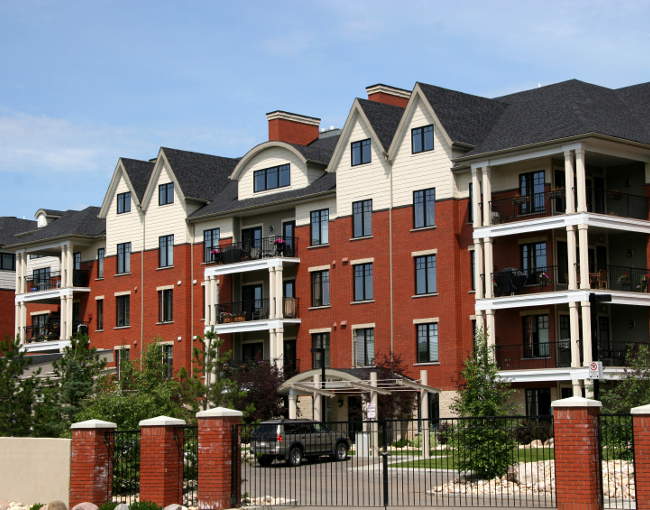Home > Insights > Publications > CARES Act enacts foreclosure and eviction moratoriums for federally-backed multifamily loan programs

The CARES Act signed into law on March 27, 2020 includes a number of provisions affecting multifamily properties with federally-backed loans. A summary of these provisions is below.
Mortgage loan payments for multifamily properties with federally backed loans (Fannie, Freddie, HUD) can be delayed
Borrowers who were current on their mortgage payments as of Feb. 1, 2020 may request forbearance from their servicer.
- The borrower must attest that they are experiencing COVID-19 financial hardship.
- Initial period of forbearance is 30 days.
- Two additional forbearance periods of 30 days each are available as long as the borrower submits a request for extension during the period between the enactment of the CARES Act and earlier of the termination of the national emergency concerning COVID-19 declared by the President or Dec. 31, 2020 and at least 15 days prior to the end of the initial forbearance period.
Multifamily borrowers who receive forbearance cannot:
- For the duration of the forbearance, evict or initiate eviction procedures against tenants for nonpayment of rent or other fees or charges or charge late fees, penalties or other charges to tenants for late payment of rent, and
- Require tenants to vacate the property until 30 days after the landlord provides the tenant with a notice to vacate and such notice may not be issued until after the expiration of the forbearance.
- Note: this is not limited to tenants affected by COVID-19, but appears to apply to all tenants regardless of their situation.
The statute does not match guidance previously issued by Fannie Mae and Freddie Mac.
- Fannie indicated that borrowers would be able to request up to 90 days’ forbearance and pay the deferred payment over 12 months. The eviction moratorium would be limited to tenants experiencing coronavirus-caused financial hardship and would last for 90 days after the forbearance agreement effective date or until the mortgage loan is brought current, whichever is longer. During the forbearance, the borrowers would be able to pay ordinary operating expenses and engage in approved capital programs.
- Freddie indicated that the forbearance program would be available for up to 90 days, and the eviction moratorium would be limited to tenants adversely affected by COVID-19.
- It is possible that Fannie and Freddie will conform their forbearance programs to the statute.
Temporary moratorium on eviction filings
This applies to federally-backed multifamily mortgage loan (Fannie, Freddie and HUD) properties, regardless of whether the borrower utilizes forbearance as outlined above.
- For 120 days following enactment of the CARES Act, landlords of the above properties may not make any filing to recover possession of the above properties from a tenant for nonpayment of rent or other fees or charges and may not charge fees, penalties or other charges to the tenant related to nonpayment of rent. Landlords also may not provide any notices to vacate (not limited to nonpayment) during the 120 day period.
- Landlords are not permitted to require tenants to vacate the above properties until 30 days after the landlord provides tenant with a notice to vacate and such notice may not be issued until 120 days after the enactment of the CARES Act.
- Note: Eviction moratorium is not limited to tenants affected by COVID-19, but appears to apply to all tenants regardless of their situation. Eviction moratorium lasts 120 days while the mortgage forbearance only lasts 90 days.
Hap Burke, Jennifer Price, and Sarah Rowan are attorneys in Thompson Coburn’s Real Estate practice group.
Click here to subscribe to News & Insights from Thompson Coburn related to our practices as well as the latest on COVID-19 issues.
